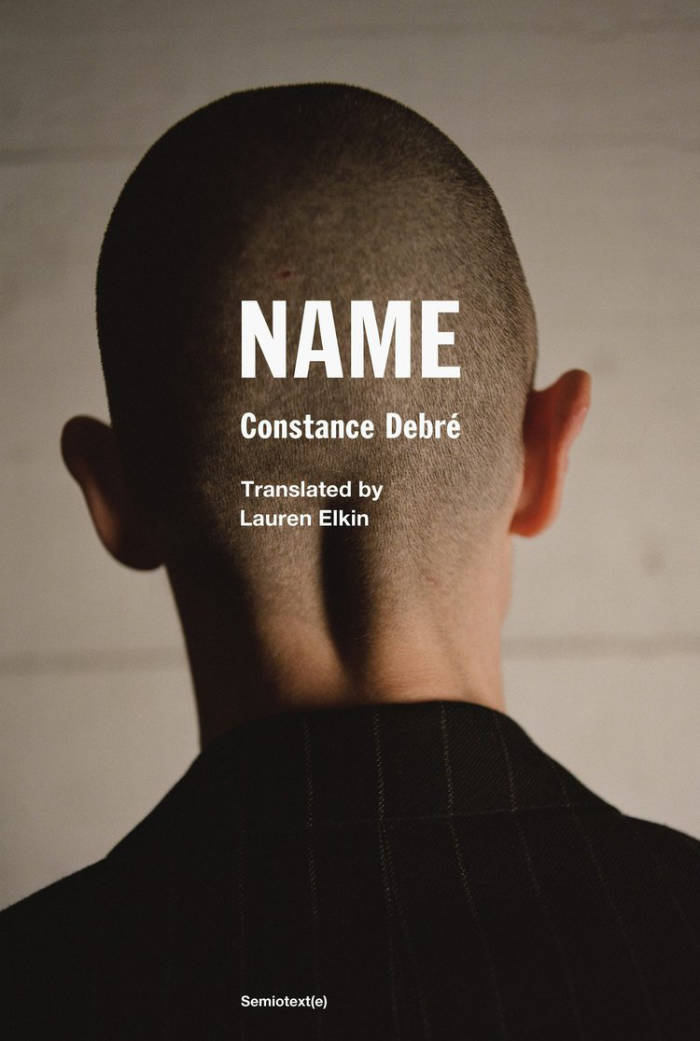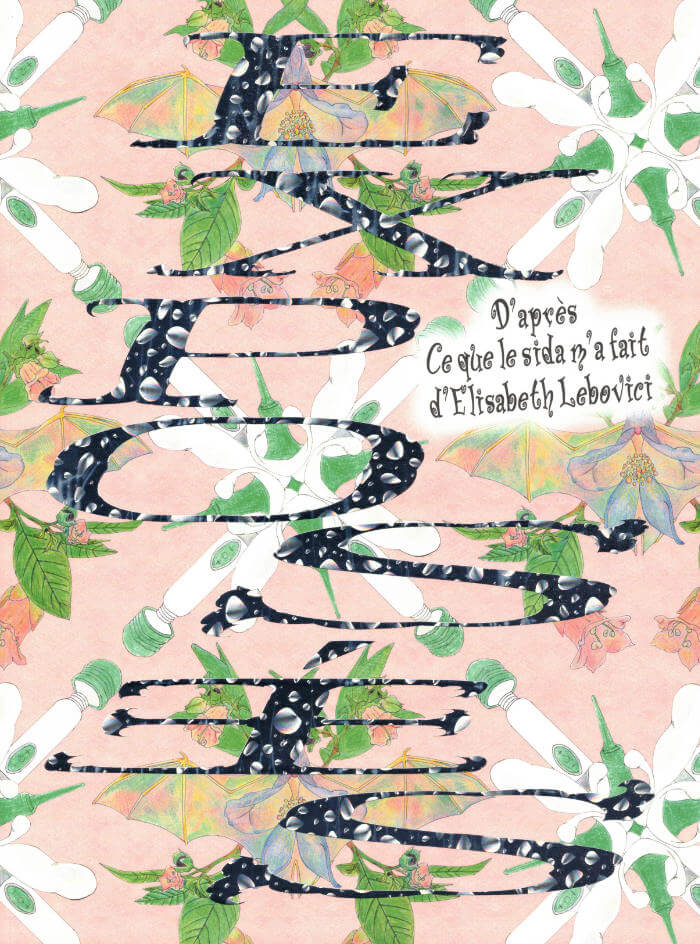Guillaume Dustan
Guillaume Dustan

Nicolas Pages
An ode to mad love, awarded the Prix de Flore in 1999.
Published in 1999 and awarded that year's Prix de Flore, Nicolas Pages marks a departure from the Sadean preoccupations of Guillaume Dustan's first three novels; it is, in essence, a love story. Inspired by a failed romance with the Swiss artist-writer Nicolas Pages and collaging texts that Dustan initially produced for a wide variety of other occasions (magazine articles, short stories, project notes, shopping lists, and more), the "auto-/bio-/porno-graphic" prose of Nicolas Pages is by turns trashy and encyclopedic, corporeal and philosophical. Here Dustan inaugurates a "gay literature" that is no longer painful or shameful, but epicurean and cheerful without ever lapsing into idealism. A vibrant plea for gay rights and a tapestried text that is more than the sum of its many styles, Nicolas Pages is a call to explore the body, sexuality, and writing in all their variety; it is a hymn to life, humanity, pleasure, and desire.

The Works of Guillaume Dustan (Vol. 1)
Guillaume Dustan' first three novels, published in French between 1996 and 1998, describing the narrator's sexual odyssey through a Paris still haunted by AIDS.
This volume collects a suite of three wildly entertaining and trailblazing short novels by the legendary French anti-assimilationist LGBTQ+ writer Guillaume Dustan. Published sequentially in France between 1996 and 1998, the three novels are exuberant and deliberately affectless accounts of the narrator's sexual odyssey through a Parisian club and bath scene still haunted by AIDS.
In My Room (1996) takes place almost entirely in the narrator's bedroom. The middle volume, I'm Going Out Tonight (1997) finds him venturing out onto the gay scene in one long night. Finally, in Stronger Than Me(1998) the narrator reflects on his early life, which coincided with the appearance and spread of the AIDS virus in France.
A close contemporary of Dennis Cooper, Brett Easton Ellis, Kevin Killian, and Gary Indiana, Guillaume Dustan's deadpan autofiction is at once satirical and intimate, and completely contemporary.
And more

Name
Name, the third novel in Constance Debré’s acclaimed trilogy, is at once a manifesto, an ecstatic poem, and a political pamphlet. By rejecting the notion of given identity, her narrator approaches the heart of the radical emptiness that the earlier books were pursuing.
Newly single, and having recently come out as a lesbian, the narrator of Debré’s first two novels embarked on a monastic regime of exercise, sex, and writing. Using the facts of her own life as impersonal “material” for literature, Playboy and Love Me Tender epitomized what Debré (after Thomas Bernhard) has called “antiautobiography.” They introduced French and American readers to her fiercely spare prose, distilled from influences as disparate as Saint Augustine, Albert Camus, and Guillaume Dustan. “Minimalist and at times even desolate,” wrote the New York Review of Books, these works defied “the expectations of personal growth that animate much feminist literature.”
Name is Debré’s most intense novel yet. Set partly in the narrator’s childhood, it rejects Proustian notions of “regaining” the past. Instead, its narrator seeks a state of profound disownment: “We have to get rid of the idea of origins, once and for all, I’m not holding on to the corpses. … Being free has nothing to do with that clutter, with having suffered or not, being free is the void.” To achieve true freedom, she dares to enter this “void”—that is, dares to accept the pain, loss, and violence of life. Brilliant and searing, Name affirms and extends Debré’s radical project.

Exposé-es : d'après Ce que le sida m'a fait d'Elisabeth Lebovici
Fonds Mercator, Palais de Tokyo
Ce catalogue qui accompagne l’exposition Exposé·es ne se divise pas en chapitres, mais entrelace les genres et les modalités d’écriture et de documentation, avec des formats variés. Il comprend notamment une multitude de courts entretiens ou écrits autour des pratiques des artistes et de personnes concernées, des essais commandés à des auteur·rices et des séquences d’images, représentant les travaux des artistes de l’exposition, ou documentant des projets artistiques qui ont eu lieu historiquement dans le contexte de ces luttes.
Avec les artistes : Les Ami·es du Patchwork des noms, Bambanani Women’s Group, Bastille, yann beauvais, Black Audio Film Collective, Gregg Bordowitz, Jesse Darling, Moyra Davey, Guillaume Dustan, fierce pussy (Nancy Brooks Brody, Joy Episalla, Zoe Leonard, Carrie Yamaoka), Nan Goldin, Felix Gonzalez-Torres, Hervé Guibert, Barbara Hammer, Derek Jarman, Michel Journiac, Zoe Leonard, audrey liebot, Pascal Lièvre, Santu Mofokeng, Jean-Luc Moulène, Henrik Olesen, Bruno Pélassy, Benoît Piéron, Lili Reynaud-Dewar, Jimmy Robert, Régis Samba-Kounzi & Julien Devemy, Marion Scemama, Lionel Soukaz & Stéphane Gérard, Georges Tony Stoll, Philippe Thomas, David Wojnarowicz
Et les auteur·ices : Clémence Allezard, Cécile Chartrain, Vinciane Despret, Mylène Ferrand, Amandine Gay, Philippe Joanny, Elisabeth Lebovici, Nicolas Linnert, Sylvère Lotringer, Tim Madesclaire, Helen Molesworth, Veronica Noseda, Peggy Pierrot, François Piron, Donald Rodney, Jane Solomon, Jo-ey Tang, Gaëtan Thomas
Design graphique : Roxanne Maillet

Love Me Tender
A novel of lesbian identity and motherhood, and the societal pressures that place them in opposition.
The daughter of an illustrious French family whose members include a former Prime Minister, a model, and a journalist, Constance Debré abandoned her marriage and legal career in 2015 to write full-time and begin a relationship with a woman. Her transformation from affluent career woman to broke single lesbian was chronicled in her 2018 novel Play boy, praised by Virginie Despentes for its writing that is at once "flippant and consumed by anxiety."
In Love Me Tender, Debré goes on to further describe the consequences of that life-changing decision. Her husband, Laurent, seeks to permanently separate her from their eight-year old child. Vilified in divorce court by her ex, she loses custody of her son and is allowed to see him only once every two weeks for a supervised hour. Deprived of her child, Debré gives up her two-bedroom apartment and bounces between borrowed apartments, hotel rooms, and a studio the size of a cell. She involves herself in brief affairs with numerous women who vary in age, body type, language, and lifestyle. But the closer she gets to them, the more distant she feels. Apart from cigarettes and sex, her life is completely ascetic: a regime of intense reading and writing, interrupted only by sleep and athletic swimming. She shuns any place where she might observe children, avoiding playgrounds and parks "as if they were cluster bombs ready to explode, riddling her body with pieces of shrapnel."
Writing graphically about sex, rupture, longing, and despair in the first person, Debré's work is often compared with the punk-era writings of Guillaume Dustan and Herve Guibert, whose work she has championed. As she says of Guibert: "I love him because he says I and he's a pornographer. That seems to be essential when you write. Otherwise you don't say anything." But in Love Me Tender, Debré speaks courageously of love in its many forms, reframing what it means to be a mother beyond conventional expectations.